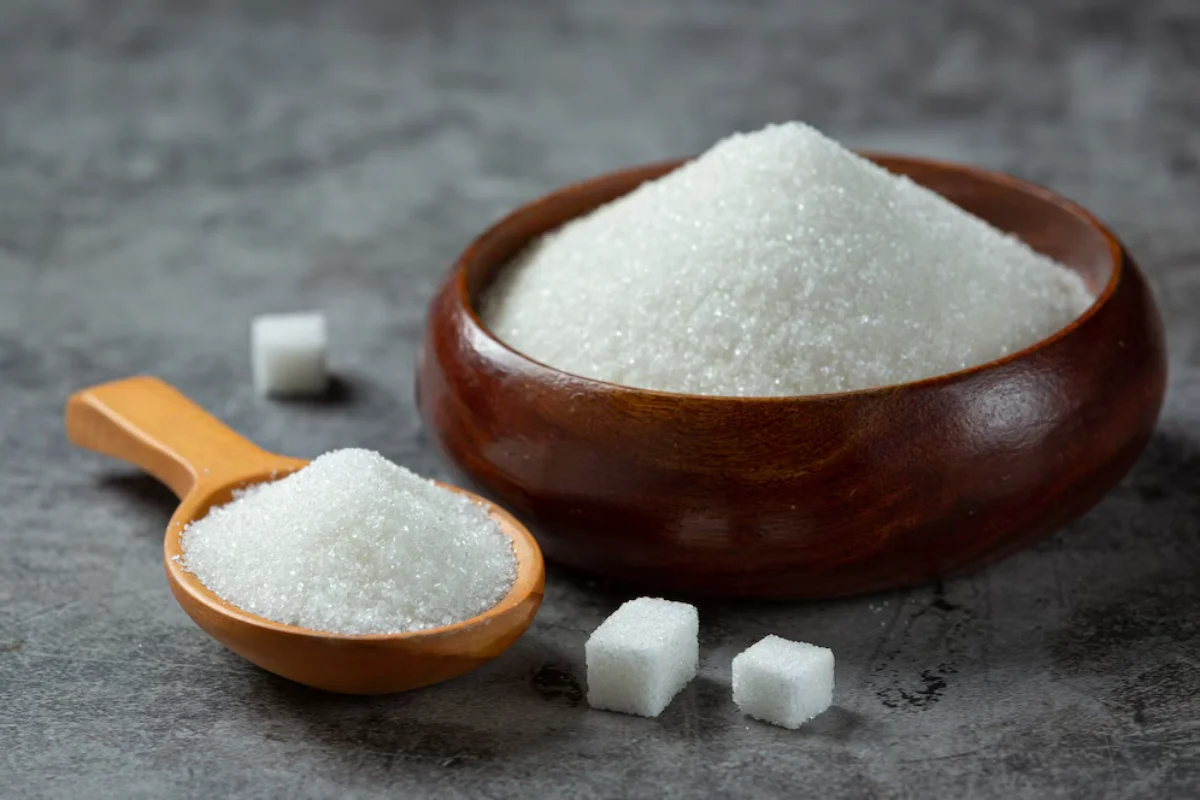
The Truth About Sugar and Its Impact on Fitness
In the world of fitness and nutrition, sugar takes centre stage. It sparks heated debates, drawing attention from health enthusiasts everywhere. With its omnipresence in our diets, grasping sugar’s true impact is essential. Whether you’re striving for health or enhancing performance, knowledge is power. This blog will disentangle the sugar conundrum, shedding light on its effects on fitness. Join us as we explore actionable insights for starting your sugar detox journey. Let’s embark on this sweet escapade together!
Sugar has become a staple in many diets, often lurking in unsuspecting places. While it can provide a quick energy boost, its long-term effects on fitness and overall health can be detrimental. This article explores sugar consumption. It clears up myths and gives tips on managing sugar intake.

Key Benefits / Why It Matters
Understanding Sugar’s Role in Fitness Nutrition
Sugar, in its various forms, is a primary source of energy. However, not all sugars are created equal. Simple sugars, such as those found in sweets and processed foods, can lead to rapid spikes in blood glucose levels, followed by equally rapid drops. This rollercoaster effect can result in energy crashes, impacting physical performance and mental clarity.
Conversely, complex carbohydrates, which break down into sugar more slowly, provide a steady energy source essential for sustained physical activity. Understanding this distinction is vital for anyone aiming to optimise their fitness nutrition.
The Importance of a Sugar Detox
A sugar detox can be a transformative step for enhancing their fitness levels. Individuals may experience increased energy levels, improved mental focus, and enhanced physical performance by eliminating or significantly reducing sugar intake. Additionally, reducing sugar consumption can aid in weight management, a crucial factor for achieving fitness goals.
Recent studies have shown that high sugar intake is linked to a range of health issues, including obesity, type 2 diabetes, and cardiovascular disease. Individuals can mitigate these risks by embarking on a sugar detox and pave the way for a healthier lifestyle.

Step-by-Step Guide to Reducing Sugar Intake
Step 1: Identify Hidden Sugars
Identifying hidden sugars in everyday foods is one of the first steps in reducing sugar intake. Many processed foods, even those marketed as “healthy,” contain added sugars. Reading food labels carefully and being aware of common sugar aliases, such as high fructose corn syrup and sucrose, is essential.
Step 2: Gradual Reduction
Going cold turkey on sugar can be challenging and may lead to withdrawal symptoms such as headaches and irritability. Instead, aim for a gradual reduction. Start by reducing sugary beverages and replacing them with water or herbal teas. Gradually reduce the sugar added to coffee or tea and opt for natural sweeteners like honey or agave syrup.
Step 3: Embrace Whole Foods
Incorporating whole foods into your diet is a powerful way to reduce sugar intake. Fruits, vegetables, whole grains, and lean proteins are naturally low in sugar and provide essential nutrients and fibre. These foods can help stabilise blood sugar levels and promote a feeling of fullness, reducing cravings for sugary snacks.
Step 4: Plan Your Meals
Meal planning is a strategic approach to maintaining a balanced diet and controlling sugar intake. By preparing meals in advance, you can avoid the temptation of reaching for sugary convenience foods. Focus on creating meals rich in nutrients and balanced in macronutrients, ensuring you have a steady energy supply throughout the day.

Additional Expert Tips & Common Mistakes to Avoid
Expert Tips for a Successful Sugar Detox
- Stay Hydrated: Drinking plenty of water can help flush out toxins and reduce sugar cravings.
- Get Adequate Sleep: Lack of sleep can increase cravings for sugary foods. Aim for 7-9 hours of quality sleep per night.
- Incorporate Healthy Fats: Healthy fats found in avocados, nuts, and olive oil can help satiate hunger and reduce the desire for sugary snacks.
Common Mistakes to Avoid
- Relying on Artificial Sweeteners: While these may seem like a good alternative, they can perpetuate a sweet tooth and have their health implications.
- Skipping Meals: This can increase hunger and a higher likelihood of reaching for sugary foods.
- Neglecting Protein Intake: Protein helps stabilise blood sugar levels and should be included in every meal.
Advanced Insights / Expert Recommendations
The Psychological Aspect of Sugar Addiction
Understanding the psychological aspect of sugar addiction is crucial for those looking to reduce their intake. Sugar can trigger the release of dopamine, a neurotransmitter associated with pleasure and reward. This can create a cycle of craving and consumption, similar to addictive behaviours seen with substances like alcohol and drugs.
Individuals can focus on mindfulness practices such as meditation and stress management techniques to combat this. These can help reduce the emotional triggers that lead to sugar consumption.
The Role of Exercise in Managing Sugar Cravings
Regular physical activity can significantly help manage sugar cravings. Exercise increases endorphin levels, improving mood and reducing the desire for sugary foods. Incorporating a mix of cardiovascular, strength, and flexibility exercises can provide a holistic fitness and sugar management approach.
Sugar The Devil or Not
To sum up, grasping the sugar truth is vital. This knowledge is key for anyone striving for better health and fitness goals. Embrace a mindful relationship with sugar, savouring whole foods along the way. Pair this with regular exercise, and watch your physical performance soar. Elevate your well-being—a vibrant life awaits!
Embarking on a sugar detox can be a challenging yet rewarding journey. It requires commitment, patience, and a willingness to make lasting lifestyle changes. Cutting back on sugar has excellent benefits. You can feel more energetic, think more evident, and perform better physically. So, it’s worth the effort.
As you consider your relationship with sugar, we encourage you to take the first step towards a healthier lifestyle today. Reflect on your current habits, set realistic goals, and embrace the journey to a fitter, healthier you. Remember, every small change counts and can significantly improve your fitness and overall health.


